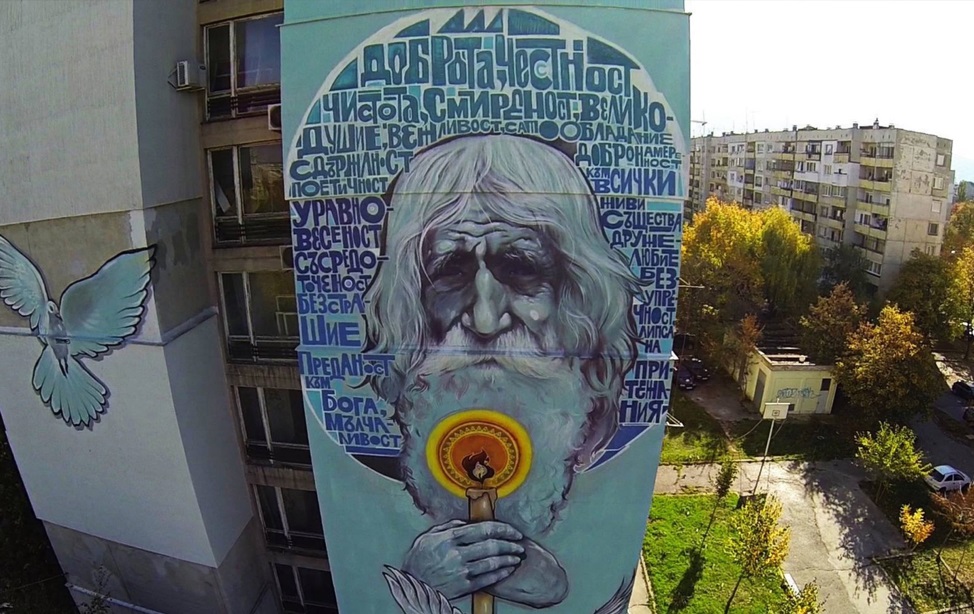The crucial point to understand about escaping from the airless claustrophobic confines of the omnipresent rational mind is that there is absolutely nothing we can ‘do’ to escape, no matter how hard or how persistently we try.
If we understand this point very clearly then this is very helpful indeed because it prevents us from going down a wrong road, it stops us getting caught up in a never-ending futile struggle – the futile struggle of the rational mind trying to escape from itself.
There is nothing we can deliberately do to escape the thinking mind because deliberations are thoughts – there is no way to ‘escape on purpose’ from the thinking mind because purposes are thoughts. The moment we start thinking ‘what we can do’ to free ourselves from our predicament we are already lost because thinking is our predicament.
But why would anyone want to escape from the thinking mind in the first place? What’s wrong with the thinking mind? Most of us don’t particularly have a problem with our own minds. The answer is of course not at all obvious until we do have a problem, until the thinking starts causing us actual suffering. Then we do want to know what to do to be free from our thinking – then all of a sudden we do become interested in this possibility.
The trouble with ‘becoming interested only when things get rough’ is that because of the pain that we’re in we are in too much of a rush to fix what is hurting us to take the time to actually study the situation carefully, and so as a result of our ill-considered haste we find ourselves running straight into the arms of the thinking mind (so to speak), looking for help, looking for solutions, looking for rational answers. We don’t see the need to study the mind until it’s too late, until it’s already got us by the throat, and is busy squeezing the very life out of us…
Searching for rational answers is our natural tendency when we are in distress, and it is also encouraged by those around us – who are equally keen to help us ‘come up with an answer’. We live in a world in which methods and procedures and protocols and the like have proliferated to an extraordinary extent and are being offered to us on all sides. We have methods and theories coming out of our ears – whenever there is a problem then we have twenty people running up to us with advice on how to solve it, rule-based procedures that will sort it out.
Methods are no good for giving us space from the controlling, thinking mind, however. Methods don’t give space – they take it away! Methods and procedures just give the controlling mind a license to carry on doing what it always does. Nothing changes – it’s just that the mind now gets to be busier than ever, and it was the infernal pernicious ‘busyness’ of the mind that was the problem in the first place!
Nothing changes when we give the rational mind a method other than the fact there is now going to be more ‘head-type’ stuff going on than ever, so we have even less ‘inner space’ available to us, even less mental freedom than we had before. No method can free us from the rational mind because the rational mind is all about methods – having an authorized method or tactic to be working with validates the thinking mind – it gives it permission to be there, thinking away like a regular beaver. We might as well try to cure an alcoholic by buying him a crate of beer!
A big difficulty with the idea of becoming free from our rational minds (which is to say, the idea not of ‘losing our minds’ entirely but getting some precious space back from the perennial ‘invasive busyness’ of our own mental activity) is that we are pretty much brought up to believe that we are our rational minds, that there is nothing else to us other than this. The rational mind is essentially a format for seeing the world which we learn to use and which we end up taking for granted (as if it were the only way to see the world) but rather than seeing ourselves as ‘the format’ it is more accurate to see ourselves as ‘that which is being formatted’.
As soon as we see ourselves not as ‘the format’ but as ‘that which is being formatted’ we realize that there is tremendous freedom in this. It is not that we can’t use the format (whenever it is appropriate to do so), but simply that we now see that there is more to us than this narrow way of looking at the world. The format is only the format, and as such it is a familiar old thing that is never going to radically surprise us (or radically interest us, for that matter) but who we are underneath it is another matter entirely. Who we are really – underneath the tiresome restrictiveness of the formatting – is a profound mystery. It is a profound mystery precisely because it has not been restricted.
The question is – how do we move out of the restrictive repetitive tiresomeness of the familiar old format which is the rational mind, and into the limitlessness of ‘who we really are’, which is ‘unformatted consciousness’? How do we escape from the suffocatingly close and airless subterranean confines of the everyday thinking mind into the wide open spaces of free consciousness?
The crucial point to understand here is, as we have said, to clearly see that there is absolutely nothing we can ‘do’ to escape from the thinking mind; we cannot create or construct or engineer freedom for ourselves out of our unfree (or mechanical) minds. We cannot think our way into a state of peacefulness.
The key to everything is to see that we are already free, to notice that we are innately free in our nature already – underneath all the suffocating conditioning of the rational mind. Once we see this innate freedom – no matter how fleeting the glimpse – then this radically changes our orientation and we start to realize more and more that freedom from thinking isn’t something we have to create for ourselves – by being clever or skillful – but that it is something that we discover within ourselves – by being patient. Cleverness is no good at all – it only enmeshes us further in our formatting.
The way to become free is essentially to notice our own unfreeness. When we don’t notice our own unfreeness then we are the furthest from freedom; as Goethe says, “None are more hopelessly enslaved than those who falsely believe they are free.”
Noticing our own lack of freedom means developing a subtler way of looking at things than the one which our everyday conditioning permits us – as soon as we see that we are constrained, limited, hemmed-in, blocked, trapped, stuck, etc, we are already in this subtler mode of awareness. We have become more sensitive – we have moved from gross to subtle consciousness.
This has to be the case since the one thing conditioning can never show us is itself. Thus, if we can become aware of the limitation imposed by our conditioned mind then we must already have developed a subtler way of looking at things.
What brings about this change, this movement from gross to subtle awareness is therefore pain or discomfort – it is pain that shows us the restrictiveness, it is mental distress that points out the limitation of the everyday or ‘conditioned’ mind. Our automatic response to pain is of course to use the machinery of the rational mind to fix whatever is causing the problem, which is as we have said can’t ever work because conditioning can’t fix itself.
The other path, the non-fixing path – ‘the road less traveled’ – is to gently notice the pain or discomfort, to patiently notice it being there’. We ‘attend’ to it. We see that we not free in ourselves and we see how this unfreeness is causing us mental pain, mental distress. This doesn’t mean ‘forcing ourselves to feel the pain’ like a person putting his hand into a fire, like a penitent walking around with stones in his shoes. It doesn’t mean trying to get ourselves to be different from our own usual pain-avoiding selves!
What it does mean is just gently noticing ‘our usual pain-avoiding selves’; there is no aggression, no violence, no ‘training’ involved – if we automatically react to the pain, in an attempt to escape it, then we patiently notice ourselves doing this. Whatever we do as a result of the pain, we gently and patiently notice ourselves doing it, without trying to interfere with or manipulate what we are doing in any way, and in this gentle ‘non-interference’ there is freedom.
In this way irreducible (or insoluble) suffering becomes the doorway to a subtler mode of awareness, it becomes the gateway to a profounder, deeper and more peaceful state of consciousness. As Rumi puts it, “The cure for pain is in the pain.”
If the suffering in question wasn’t irreducible or insoluble (which is to say, if we could solve it by the judicious application of methods, procedures, tactics, strategies etc) then it wouldn’t be suffering – it’s only suffering because we can’t make it go away. If we could control or manage it to make it go away then it wouldn’t count as suffering, it would just be an itch that goes away when we scratch it…
If our strategy was successful and we could make the pain go away then we’d simply go back to sleep – we’d go straight back to the comfortable unconscious state of being ‘unfree but not knowing that we are unfree’. It is precisely because ‘nothing works’ that we wake up! Pain wakes us up, and successful strategies to fix the pain put us straight back to sleep. This is in fact why we want to have successful strategies – because we want to go back to sleep.
No strategy lasts forever however – all strategies fail in the end and it is the ‘much lamented’ failure of that self-governing fully-automated system of models and theories and concepts and ideas and methods and strategies known as the ‘rational mind’ that causes us to finally wake up out of the sleep of the conditioned state, the ‘unconscious mode of being’.
‘Waking up’ therefore simply means realizing that we are not our formatting. It means realizing that we are not our tired old rational image or idea of ourselves, that we are something far more subtle and mysterious than this.
Or we could just say that ‘waking up’ means freedom from the omnipresent, omnivorous old thinking mind.






Zee
If we are \”already free\”, what do we have to \”be patient\” for?
Genuine question, my friend.
Isn\’t the solution you describe, indeed, itself a formula – a form of meditation, perhaps?